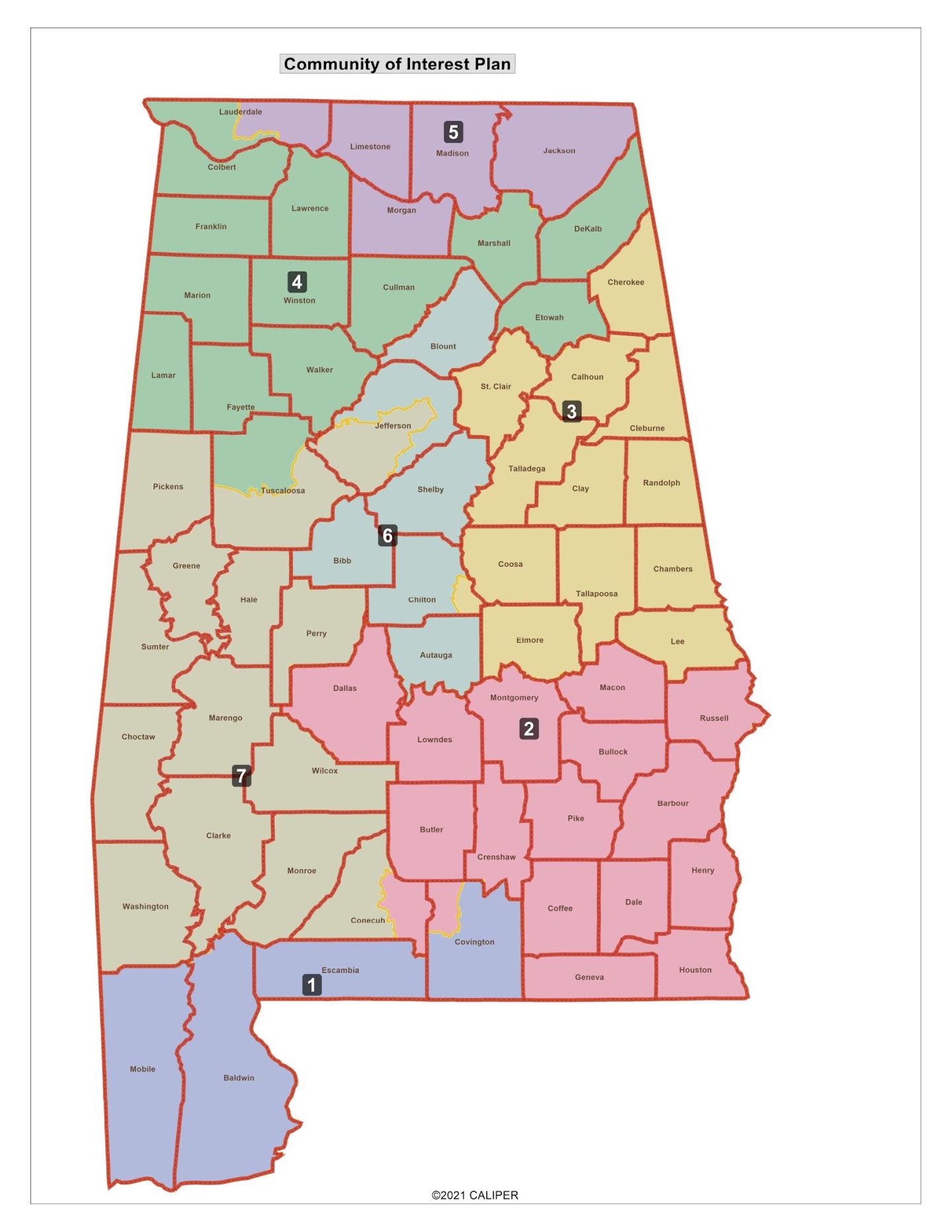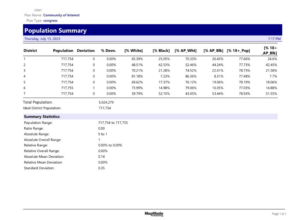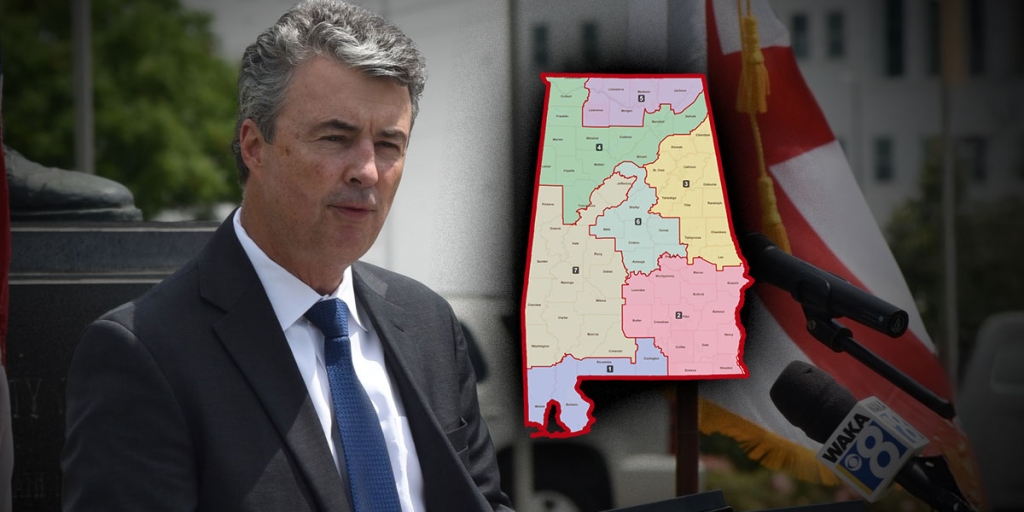A joint committee of the Legislature approved a congressional redistricting map today during the first day of a special session.
Lawmakers returned to the Statehouse following a U.S. Supreme Court ruling that overturned maps approved by the Legislature in 2021.
On Monday morning, the redistricting committee held its first official meeting during the special session to initiate the approval of a new map.
Plaintiffs in the case have proposed their maps and lobbied the committee in recent weeks to adopt their proposal to solve the Voting Rights Act violations.
Joint committee co-chairs, Rep. Chris Pringle (R-Mobile) and Sen. Steve Livingston (R-Scottsboro) announced their support for one plan in particular: Community of Interest.
That plan was subsequently adopted in a 14-6 vote by the committee on Monday. Given the minimum of 5 days it takes for a bill to become law, the Community of Interest map is on its way to be the plan of choice submitted to the federal court.

According to a demographic breakdown on the plan, District 7 – represented by Rep. Terri Sewell since 2010 – will sustain a majority-black voting age population (51.55%). District 2, Rep. Barry Moore’s district, would have that figure increased by 10% (42.45%).
Rep. Chris England (D-Tuscaloosa) expressed frustration with the options before lawmakers.
“I think it’s clear the strong pattern in Alabama up until this point, in order to have black representation in the state of Alabama, the district has to have a majority of black population,” England said.
“The districts that have been created by lawsuits throughout our history to create African American representation, in fact the largest black delegation by population in the country, if I’m not mistaken, was created by a lawsuit that created majority black districts.”
Pringle said it wasn’t about the outcome of the elections as much as it is the opportunity of choice for eligible voters.
“Two districts in the state of Alabama with a majority/minority district have both elected Caucasian men to them. Two of them,” Pringle said. “That’s who they chose. They chose two white men to represent them. You can’t draw a district to force people to elect somebody. They get to choose who they want to elect.”
Today and during public hearings in weeks past, Pringle communicated the tight deadline and limited manpower the committee has to invest in reviewing maps. He says each map received by the committee must be loaded into a software called Maptitude, which takes time and diligence.

Senate Minority Leader Bobby Singleton (D-Greensboro) jokingly told Pringle that public feedback wasn’t necessary as he felt left out of the process.
“You didn’t have to do that,” Singleton said. “You had to have public hearings, but you could’ve put a map in so the public could’ve gave input on that particular map.”
A three-judge federal district court ordered the Legislature to approve congressional district map by Friday. If the Legislature fails to meet that deadline, the court’s experts will draft a map.
Leaders say they’ve received more than 100 proposals, some as far away as France and New Zealand.
Sen. Roger Smitherman (D-Birmingham) accused the map of gerrymandering and said he predicts that will be the case, where a special master will ultimately redraw the map.
“It splits the Black Belt up considerably,” he said. “And just what I said a few minutes ago. As I look at the Black Belt, it looks like they’re gonna get a whammy on both ends.”
The specific language of the Supreme Court ruling requires that “any remedial plan will need to include two districts in which Black voters either comprise a voting-age majority or something quite close.”
A joint House-Senate committee composed of 22 members representing 15 Republicans lawmakers and seven Democrats initiated that process Monday morning with the approval of the Community of Interest plan.
Pringle underscored the openness of the process, despite the tight and “stressful” timeline imposed by federal courts.
“We have several maps that we’ve been through today that have alternatives,” he said. “Again, I’ll remind you, every member of the Alabama Legislature has the right to introduce a map into the session.”
Pringle told the committee the map they authorized will meet the criteria handed down by the courts.
“The attorney believes it is compliant but we’re waiting on an analysis to come in,” he said.
Grayson Everett is a staff writer for Yellowhammer News. You can follow him on Twitter @Grayson270












